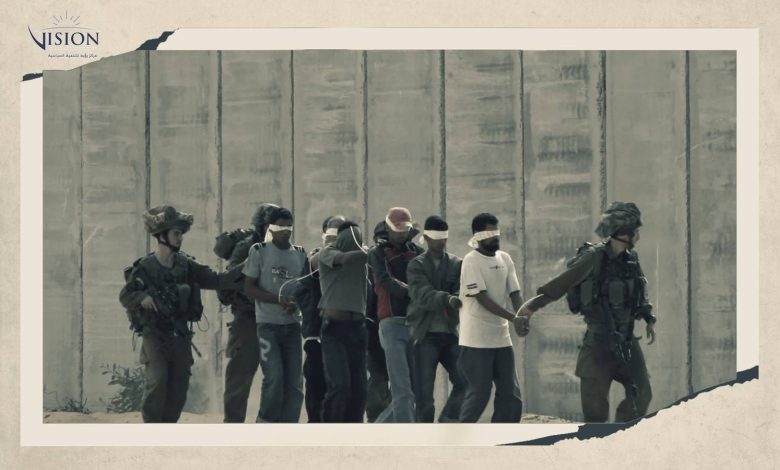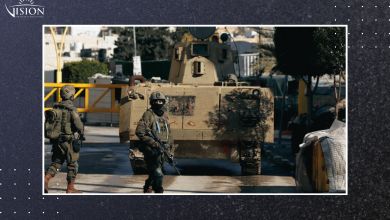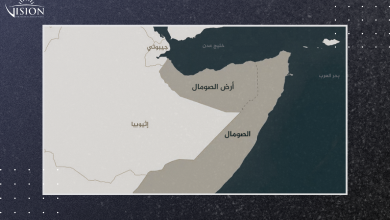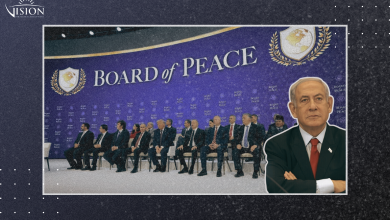The Implications of Israeli Oppressive Policy and Behaviors towards Palestinian Political Prisoners

Mohammed Al-Qiq[1], Suleiman Basharatt[2]
The most recent report from the Palestinian Prisoners’ Society indicates that since October 7, Israeli forces have arrested over 6025 Palestinians in the West Bank. This report highlights that the number of administrative detainees in 2023 has reached a peak that Palestinians has not witnessed since the first Palestinian Intifada in 1987. The arrests targeted various demographic segments, and encompassedjournalists, former prisoners, activists, as well as the elderly, children, and women.
There has been a notable escalation in the targeting of detainees within jails, coinciding with the increase in arrests. Statistics reveal that six Palestinian political detainees have been killed as a result of beatings, torture, and medical neglect since October 7, 2023. Testimonies provided by released prisoners, as well as those still imprisoned, expose the adoption of severe unprecedented punitive policies by the occupying forces includingovercrowding and the deprivation of basic rights guaranteed by international laws, along with harsh treatment, systematic beatings, and assaults by jailers. Such measures raise questions about the objectives and implications of these practices at this juncture.
The Escalation Against Detainees and the Violation of Agreements:
Human rights and media institutions have been documenting numerous testimonies from released detainees about the severe beatings they endure in prisons, sometimes resulting in the threat of being murdered, as in the case of prisoner Omar Draghmeh in Majidoo prison. The use of violence against detainees begins from the moment of their arrest from their homes and continues during their transfer to prisons or investigation centers. The severity, however, does not end there. Documented testimonies reveal that the beatings, torture, and humiliation persist even after the detainees are placed in prison cells.
In addition to the systematic methods of torture and beatings, Israeli prison administrations deliberately enforce a policy of detainees’ starving. This involves depriving them of sufficient food quantities and providing them with poor-quality meals, directly impacting their health. Testimonies from prisoners disclosed that only two meals are provided per day, in minimal quantities, noting that some detainees are ill and require healthy food.
Furthermore, the Israeli prison authorities have deliberately isolated detainees completely from the outside world by confiscating all televisions and radios in prisons and denying them visits from the International Red Cross or private lawyers. This has deprived them of the ability to reassure their families or convey messages to them, constituting a method of psychological torture for both the detainees and their families who remain unable to ascertain the fate of their incarcerated sons or daughters, anxiously awaiting the release of any prisoner to hear news about their loved ones.
A report by Amnesty International indicates that Palestinian detainees in Israeli prisons are subjected to humiliation, as evidenced by the testimonies of dozens of released prisoners. These practices include severe beatings, stripping and degrading the detainees, forcing them to keep their heads down, kneel on the ground during roll-calls.
The actions of the occupying forces against Palestinian detainees constitute a clear violation of the Geneva Convention, particularly Article 13, which mandates the humane treatment of prisoners of war at all times. This article prohibits the detaining power from committing any unlawful act or neglect leading to the death of a prisoner under its custody, considering such actions as grave breaches of the Convention. Furthermore, prisoners must be protected at all times, especially against acts of violence or intimidation, public curiosity, and measures of retribution or revenge. Article 14 of the Convention stipulates respect and honor under all circumstances to the prisoners, and that female prisoners must be treated with all due consideration for their gender and receive no less favorable treatment than men.
In response to these ongoing violations, the Palestinian Authority for Prisoners’ Affairs has appealed to the Qatari and Egyptian intermediaries, the International Committee of the Red Cross, the United Nations, and the international community, urging them to pressure the occupying forces to cease their retaliatory onslaught and systematic crimes against prisoners since October 7. The Authority has also called for an investigation into the targeted operations against the detainees.
Implications of Israeli Behavior:
Israeli behavior in the West Bank, paralleling its war on the Gaza Strip, carries multiple implications in the context of the mass arrests that target dozens of individuals from a single family simultaneously, use of human shields in confrontations, and unwarranted escalation in the arrest and maltreatment of women and children. The significance of Israeli actions during these arrests can be interpreted through several messages:
- The attempt to convey to the Palestinian public that the events of October 7 will bring retribution, destruction, and suffering. This was evident in the arrest policy that did not discriminate between children, women, and men, extending to all Palestinian geography, including the territories occupied in 1948 and East Jerusalem.
- It signifies that the Israeli occupation seeks to link the daily suffering of Palestinian detainees to the events of October 7. The aim is to demoralize the Palestinian spirit and seek vengeance for the occurrences in Gaza.
- It represents employing a pre-emptive equation, known as the deterrence equation, for any event or action, and initiated widespread arbitrary arrests. These arrests include former prisoners, members of the Legislative Council, faction leaders, spokespersons, analysts, writers, activists, and representatives. This is to ensure that no organizational link or communication remains to establish a military resistance operation, financial network, social network, or even a political network to organize marches and protests.
- Through the nature of these arrests, the occupation seeks to establish psychological and moral deterrence.
The invasion of citizens’ privacy extended to raiding homes, examining mobile phones and computers, scrutinizing WhatsApp and Telegram accounts, and internal family groups to monitor communications.
Conclusion:
The Israeli occupation seeks to rebuild the deterrence equation that was fractured by the Al-Aqsa Flood operation on October 7, 2023. This is done through the escalation of the arrest accompanied by the use of maltreatment, beatings, and humiliation, leading in some cases to the martyrdom of prisoners. This recognizes that the Palestinian model that emerged could invigorate the Palestinian civilian base and enhance the importance and role of resistance as a strategic choice against Israeli occupation. The occupation aims to erase this from the Palestinian mindset and replace it with images of beatings, humiliation, and collective punishment.
However, this Israeli strategy has proven unsuccessful and incapable of eradicating the comprehensive identity of the Palestinian people, who have been resisting occupation since 1948. Despite the maltreatment, beatings, arrests, and massacres committed against them, this may probably generate a contrary reaction, strengthening the Palestinian commitment to resistance, and opening the door for broader Palestinian segments to engage in the struggle against the occupation if this Israeli behavior continues over an extended period.
[1] – Former prisoner and researcher on Palestinian prisoners’ issues. [2] – Researcher at Yabous Consulting and Studies, Ramallah.




